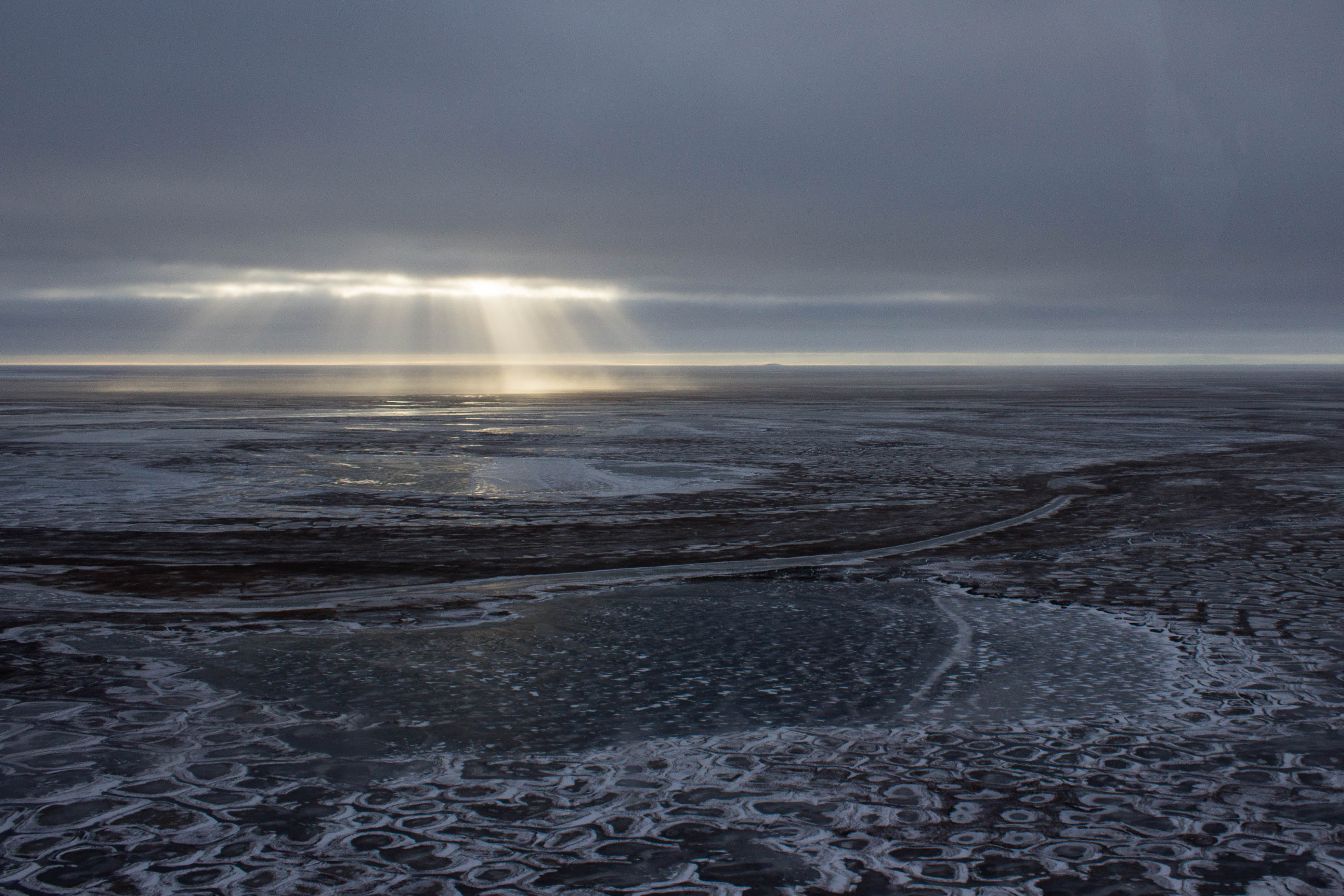An Alaska Native corporation makes a move toward exploring for oil in the US Arctic Ocean, where Shell failed
A subsidiary of Alaska’s wealthiest regional Native corporation is moving ahead with plans to follow in the footsteps of Shell and explore for oil in the U.S. Arctic Ocean.
The Alaska Native company, ASRC Exploration, is looking to succeed where the Dutch oil giant failed. It’s currently asking federal regulators not to cancel a block of leases once held by Shell in federal waters at Camden Bay about 15 miles off the North Slope coast northwest of the Arctic National Wildlife Refuge.
Officials in 2016 did not approve Shell’s request to extend those Beaufort Sea leases, most of which are set to expire this year. ASRC Exploration acquired the leases from Shell in 2016.

ASRC Exploration hopes things might be different under a pro-development Trump administration trying to speed up the permitting process.
The company recently cleared one hurdle when the U.S Bureau of Safety and Environmental Enforcement approved its request, combining 20 leases into a unit, Mark Fesmire, the agency’s Alaska region director, said on Friday. The “unitization” allows regulators to treat the group of leases as a single, large lease, so that activity in one lease can keep all the leases alive.
“ASRC Exploration is encouraged by the decision to approve the unitization,” said Ty Hardt, a spokesman with Arctic Slope Regional Corp. The exploration company “remains hopeful” the extension request will be approved.
ASRC, the parent company of ASRC Exploration, is owned by Native shareholders from the oil-rich North Slope. The parent company posted 2015 revenues of more than $2.5 billion.
On shore, ASRC Exploration has another oil prospect. It is taking steps to develop a site on the North Slope known as Placer after conducting exploratory drilling there.
The Bureau of Safety and Environmental Enforcement will decide on ASRC Exploration’s most recent application “as soon as we get adequate information and complete our analysis,” Fesmire said. “We’re working with ASRC Exploration to get all the information we need.”
If the leases are extended, ASRC Exploration would have to clear a series of regulatory hurdles before exploratory drilling is allowed, Fesmire said.
Companies looking for oil in Camden Bay have found promising signs, said David Houseknecht, project chief for the U.S. Geological Survey’s Energy Resources Program for Alaska.
In the 1980s and 1990s, Unocal and Arco each made an oil discovery in the area containing more than 50 million barrels of oil, he said. But development in the region is costly, and the discoveries never led to production.
Additional discoveries might await, he said. The area is known for rock features that can trap oil, and oil seeps have been found on the coast of the wildlife refuge.
“The fact these two discoveries were made at relatively shallow depth in rocks with very good reservoir quality is encouraging,” Houseknecht said.
In 2012, Shell conducted preliminary drilling at Unocal’s Hammerhead discovery after renaming its target, calling it Sivulliq. Sivulliq means “first one” in Inupiat.
But Shell was not allowed to drill into zones expected to contain hydrocarbons, since it lacked the required system in place to capture oil in the event of a spill.
Shell used the Kulluk drilling rig for the operation. It later ran aground off an island near Kodiak as it was being towed to Seattle.
Following the wreck, Shell never finished drilling the Beaufort Sea prospect, and eventually abandoned its hunt for oil in the Arctic Ocean.
Torpedo, another Shell prospect, was never drilled.
Shell had also applied to extend the leases, but did not provide a sufficient activity plan, Fesmire said.
Michael LeVine, with offshore drilling opponent Oceana, said it’s unlikely ASRC can pull off what Shell couldn’t, and keep the leases alive.
“Shell tried more than once to explore on them. There are no active exploration proposals and little reason to think ASRC or anyone can satisfy the legal obligations to have the expiration dates extended,” LeVine said.
Alaska Natural Resources Commissioner Andy Mack said he thinks ASRC Exploration will get fair treatment from the Bureau of Safety and Environmental Enforcement.
He said it’s relevant that ASRC is an Alaska-based company with whalers and subsistence hunters on a board of directors.
“I think ASRC is positioned well,” he said. “I think they’re going to have an opportunity to make something happen.”